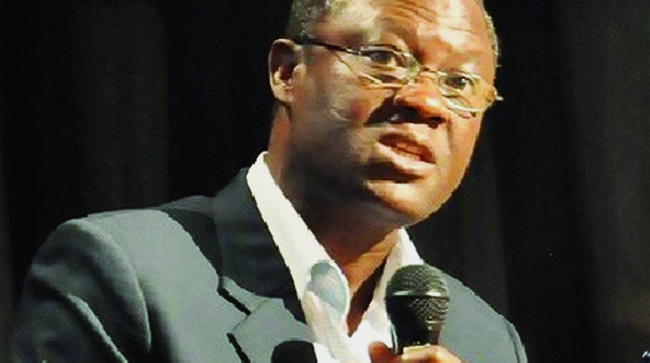
SADA facilitates construction of Pwalugu Dam
Savanna Accelerated Development Authority (SADA) is facilitating the development of the Pwalugu Dam into a multi-purpose dam that will serve as a strategic infrastructure to unlock the agricultural potential of the savanna zone.
The project, which is estimated to cost US$700 million, is also aimed at managing the periodic floods in the Upper East Region by stabilising water flow.
The Chief Executive Officer of SADA, Mr Charles A. Abugre, told the Daily Graphic that recent feasibility studies conducted by Alliance Francais d’Development confirmed that the dam had the potential to irrigate up to 100,000 hectares (ha) by gravity flow and pumping.
“It can also produce between 40 and 70 megawatts of hydropower to power communities and industries within the area and the country at large,” he added.
Agriculture
Mr Abugre explained that the Pwalugu Dam was one of 23 medium-to-large-size dams identified by the authority as strategic infrastructure necessary to facilitate agricultural development in the savanna zone.
He recalled that the first feasibility study into the construction of the dam was conducted in 1965.
In recent times, he said, President John Mahama had, on a number of occasions, spoken about the strategic importance of the dam to the development of the Northern Savannah Ecological Zone and Ghana in general.
That, he said, explained the authority’s resolve to facilitate the realisation of the project.
Floods
Floods normally occur in the Upper East Region when the Bagre Dam, located upstream on the Burkina Faso part of the White Volta, spills its waters.
The annual run-off water in the SADA Zone is estimated to exceed 40 million cubic metres, most of which is normally lost to the sea, evaporates or causes sheet erosion.
“The dam, therefore, is to re-channel this water for various uses. As we speak, the rains that are pouring down in the northern part of the country are already filling up the banks of the White Volta,” Mr Abugre said, explaining that the availability of the Pwalugu Dam would help stabilise the water and store it for irrigation and hydropower purposes.
Impact
According to the CEO, feasibility studies on the economic and social viability of the project attested to the fact that it was economically viable.
He said the successful execution of the project could also catalyse economic activities, including all-year round cultivation in the neighbouring communities.
“The area could become Ghana’s major food basket and that will have an immediate impact on the ailing Pwalugu Tomato Factory which lacks the needed raw materials,” he said.
Ecosystem
Mr Abugre, however, explained that the environmental impact assessment (EIA) of the project showed that it could have some adverse environmental impact on the ecosystem in the area.
"The EIA showed that there could be potential irreparable damage to ‘critical natural habitats’ in the area. There are some tree species (forest reserves) that are assessed to be unique to the ecosystem and that will be inundated when the dam is constructed.
"There is a historical elephant corridor that passes through that area and the elephants that pass there are assessed to be unique in the whole world," he explained.
He, however, indicated that those findings could be contested.
“Besides, the potential environmental damage can be mitigated to allow this ‘game-changing’ project to be realised,” he said.
He said the authority was in discussions with the Environmental Protection Agency (EPA) to conduct an independent review of the report, including undertaking community consultations for accuracy and to identify mitigating measures.
Mr Abugre explained that the EPA’s output was necessary to clear the way for the likes of the World Bank, which has expressed interest in the project, to mobilise funds for its construction.
The European Investment Bank (EIB) and the Sinohydro Corporation of China had also already expressed interest in the project, he added.
"There is great potential for mobilising funding but we have to solve this environmental issue first," he explained.
